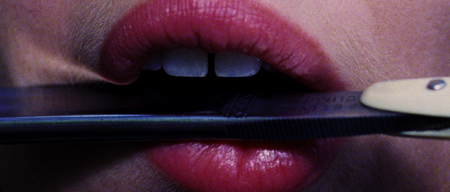The present wisdom being circulated — that the healthcare reform passed on Sunday night is “a step in the right direction” — blindly assumes that a public option bill rectifying HMO avarice (among other consolidations of power working against the commonweal) is forthcoming. It assumes that healthcare costs will remain the same between now and 2014 — the year in which all individuals who can’t get healthcare from their employers (including the unemployed, the self-employed, and those working for a business with less than 50 employees) will be required by law to purchase healthcare. (By 2016, those who fail to purchase healthcare will take either an annual tax hit of $695 or 2.5% of household income, whichever sum is greater.)
But the new legislation doesn’t require businesses with less than 50 employees to offer healthcare for its workers. Which means that, for these small businesses, the onus will fall upon the worker to bankroll her own healthcare. And while it is true that federal subsidies (i.e., affordability credits, which will run out in 2019, a little-observed issue among some progressives) will exist, through a graduated scale, to help any individual making less than $44,000 a year ($88,000 for a family of four) pay for her own insurance (at least over the course of a six year period), there remains an army of elephants in the room that nobody wants to talk about.
Beyond the misplaced definition of “neutralizing” industries identified by Glenn Greenwald, there’s the uncertain future of whether premiums can even be stabilized to fit a healthcare organization’s for-profit disposition. The Los Angeles Times‘s Duke Hefland couldn’t seem to get any prognostication from the experts. But if there’s anything just as certain as death and taxes, a for-profit corporation will find a way to make more money, stopping at nothing to squeeze out the vulnerable. While the bill does put a stop to the deadly practice of denying healthcare applicants coverage because of pre-existing conditions (this is arguably Sunday night’s greatest victory and the linchpin for greater progress), it doesn’t hold insurance companies accountable for escalating prices. There hasn’t been a National Insurance Rate Authority established (although Sen. Feinstein attempted to sneak one in), but there has been traction in getting the antitrust exemption removed. Still, the failure to establish an authority is especially problematic, considering that a health insurance company’s business model involves collecting from the healthy to pay for the unhealthy. And what is to stop an insurance company from jacking up premiums across the board (as Anthem notably did back in February)? What is to halt CEOs from collecting compensation? Will we see a legion of Nick Riverias offering cheap and possibly ineffectual insurance to help people purchase the mandated care? Time will tell. But many of these possibilities could have been avoided with a public option.
The Democrats were forced to make some serious concessions on these points. And their long-term strategy may involve a clever alliance. Since the responsibility for paying for healthcare now falls upon a large cluster of businesses, perhaps these businesses may align themselves with government against any premium spikes from the insurance industry. On the other hand, any potential alliance will inherently favor the corporation or the business with more than 50 employees.
Let’s say that you’re someone looking for a new job in 2014. You don’t have any savings. And you need to get a job. Because you don’t have any healthcare. And if you don’t get the healthcare, essential and vital as it may be, you’re going to be hit with hard financial penalties. Corporation A offers you a job for $40,000, which includes healthcare benefits. Meanwhile, Small Business B has made you a counteroffer of $42,000. But because Small Business B employs only ten workers, under these arrangements, you’d be forced to pay your own healthcare costs if you decided to take this job. So in order for you work for Small Business B, you’d need B to pay you about $5,000 more, so that you can purchase the federally required healthcare. But Small Business B can’t afford this. For Corporation A, which must pay for healthcare, and Small Business B, which doesn’t have to, there’s certainly a financial advantage to the small business. But the worker is going to opt for Corporation A. Because the employee is going to get less income after healthcare costs working with Small Business B than with Corporation A. Therefore, potential innovation that might emerge with the small business job is lost to the corporation. And I haven’t even begun to examine the impact on the self-employed — MJ Rose tweeted back to me last night her nightmarish escalation of costs — along with the abortion restrictions (followed by cries of “baby killer”).
A public option and a central insurance rate authority (along with a 21st century recognition of gender realities) would help to create affordable healthcare rates, work to rectify these imbalances, and begin the journey to a greater goal: universal health care that regular people can afford and, if they can’t, care that they can receive for free, without an IRS or an HMO invoice attached, and without the spoils going to private industry. That is the mark of a civilized nation. That is the true mark of progress. But maybe, just maybe, we’re on our way.

 Correspondent: Let’s start with the beginning of the novel. I think that’s pretty appropriate. You write, “The origin point of the novel lies in its pretense of actuality.” You point to Defoe and Fielding’s efforts to suggest “real” accounts. But I’m wondering if any effort to offer a pretense of actuality in our present age, whether it’s through a remix or a collage, really represents an inevitable return to this antediluvian form. This pretense of actuality.
Correspondent: Let’s start with the beginning of the novel. I think that’s pretty appropriate. You write, “The origin point of the novel lies in its pretense of actuality.” You point to Defoe and Fielding’s efforts to suggest “real” accounts. But I’m wondering if any effort to offer a pretense of actuality in our present age, whether it’s through a remix or a collage, really represents an inevitable return to this antediluvian form. This pretense of actuality.
 Correspondent: I wanted to ask you about your sentences. You do something extremely interesting, and this syllabic form of internal rhyme. I’ll just give you a number of examples: “a tawny teen in a cocktail dress of skimpy hemp.” “I started to rub myself and, remembering I would have to retrieve Bernie soon, recalled that I’d once done what I was doing with Bernie in the room.” So there’s the oo, oo. The book’s opening line, of course: “Horace, the office temp, was a run-down and demented pimp.” So I’m curious whether these particular sounds serve as, I suppose, reference points in your mind to get a sentence right, whether this came from your previous career as a lyricist or possibly the Gordon Lish school rubbing off now after so many books and the like.
Correspondent: I wanted to ask you about your sentences. You do something extremely interesting, and this syllabic form of internal rhyme. I’ll just give you a number of examples: “a tawny teen in a cocktail dress of skimpy hemp.” “I started to rub myself and, remembering I would have to retrieve Bernie soon, recalled that I’d once done what I was doing with Bernie in the room.” So there’s the oo, oo. The book’s opening line, of course: “Horace, the office temp, was a run-down and demented pimp.” So I’m curious whether these particular sounds serve as, I suppose, reference points in your mind to get a sentence right, whether this came from your previous career as a lyricist or possibly the Gordon Lish school rubbing off now after so many books and the like.
